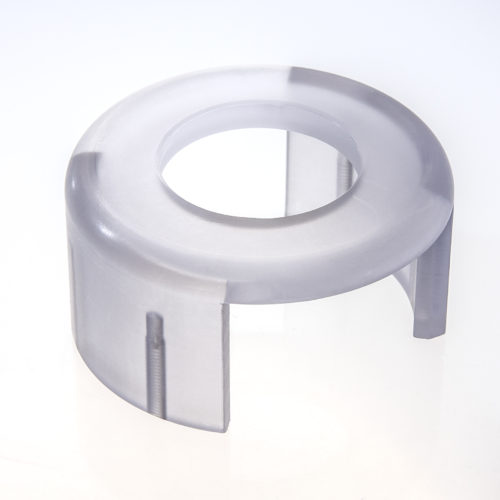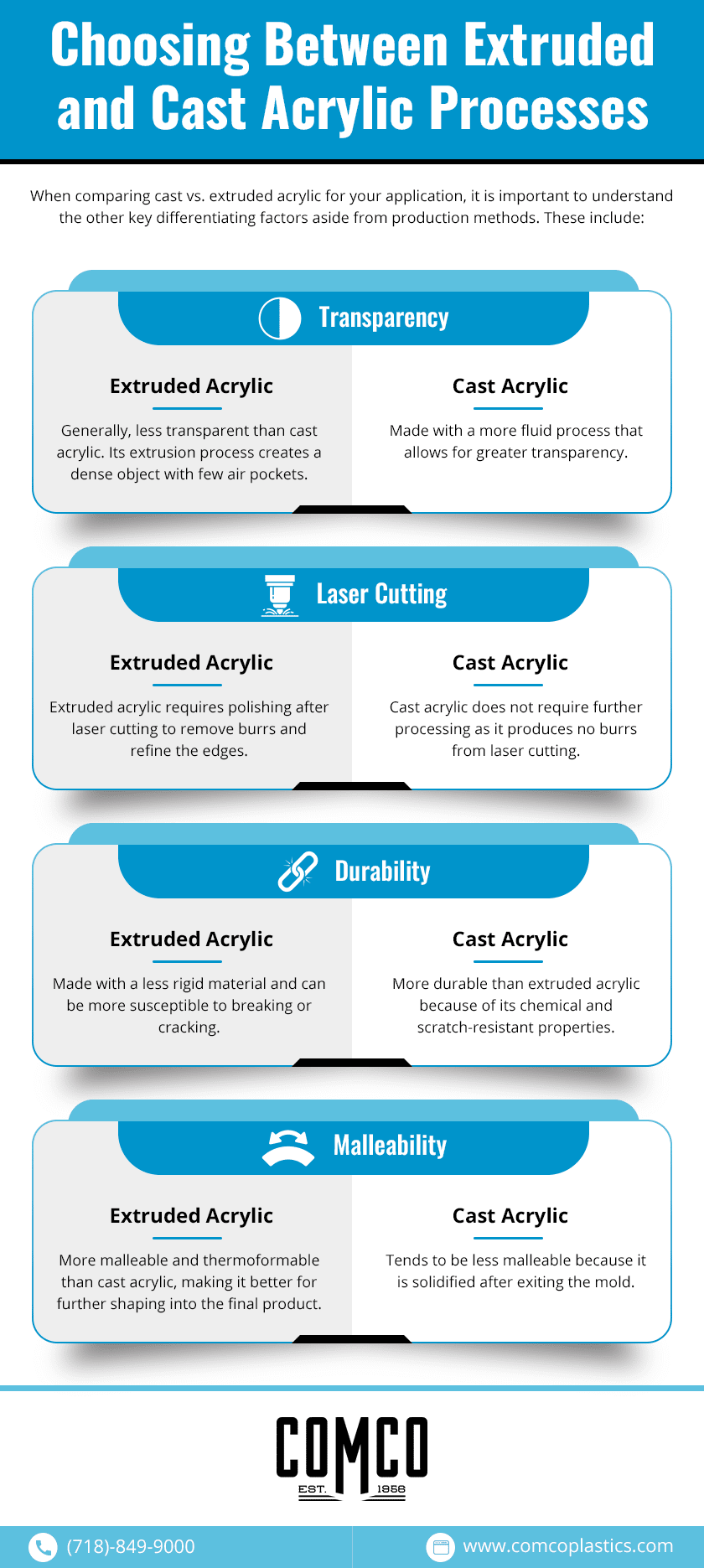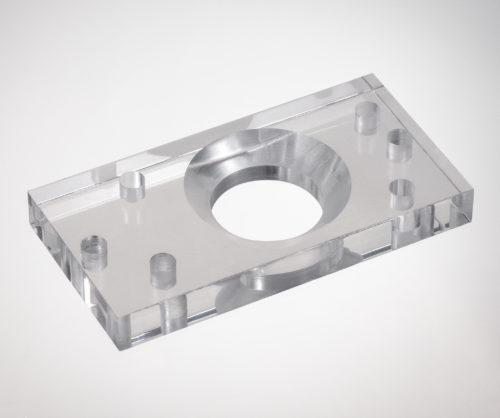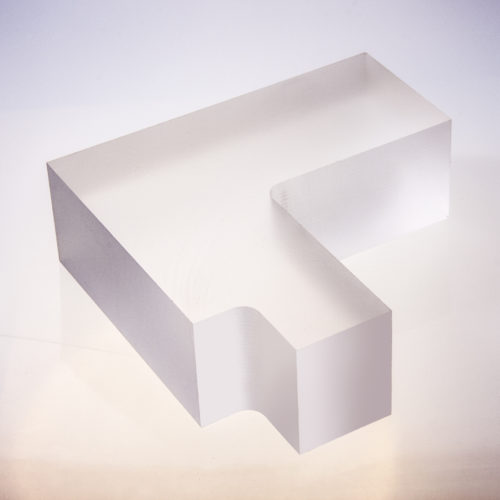Acrylic is a durable, transparent synthetic polymer that is produced through a chemical reaction between a monomer and a catalyst. Acrylic is an excellent alternative to glass due to its lightweight and enhanced transparency. Acrylic products can be manufactured using either casting or extrusion processes. Both methods offer unique advantages and disadvantages relative to the intended application.
What Is the Difference Between Extruded and Cast Acrylic?
Extruded acrylic is created by forcing molten acrylic through a series of rollers that add texture, forming the polymer into a sheet. The acrylic sheet is then cut into shaped pieces and dried. The finished product has a smooth, glossy surface with a distinctive texture.
On the other hand, cast acrylic, or Plexiglass™, is produced by pouring a liquid acrylic mixture into molds and then allowing it to cool and solidify. Casting is often used for objects that are likely to be exposed to various elements. Though more labor-intensive, casting can produce more durable components that are better equipped to withstand harsh conditions.
When comparing cast vs. extruded acrylic for your application, it is important to understand the other key differentiating factors aside from production methods. These include:
Transparency
- Extruded acrylic: Generally, less transparent than cast acrylic. Its extrusion process creates a dense object with few air pockets.
- Cast acrylic: Made with a more fluid process that allows for greater transparency.
Laser Cutting
- Extruded acrylic: Extruded acrylic requires polishing after laser cutting to remove burrs and refine the edges.
- Cast acrylic: Cast acrylic does not require further processing as it produces no burrs from laser cutting.
Durability
- Extruded acrylic: Made with a less rigid material and can be more susceptible to breaking or cracking.
- Cast acrylic: More durable than extruded acrylic because of its chemical and scratch-resistant properties.
Malleability
- Extruded acrylic: More malleable and thermoformable than cast acrylic, making it better for further shaping into the final product.
- Cast acrylic: Tends to be less malleable because it is solidified after exiting the mold.
Extruded Acrylic Advantages and Applications
Extruded acrylic is easy to work with and has a wide range of uses and benefits. Acrylic extrusion is:
- Cheaper than casting
- Easier and faster in production
- UV and electrically resistant
- Thermoformable, meaning that you can mold it into different shapes using heat
Some applications of extruded acrylic include:
- Glazing
- Building and construction
- Digital printing
- Framing
- Point-of-purchase displays
- Signage
- Transportation
- Display cases/ museum casings
- Electrical applications
- Food processing and handling
- Models
Cast Acrylic Advantages and Applications
Cast acrylic is more expensive than extruded acrylic but offers enhanced quality for certain applications. Its advantages include:
- Rigid and lightweight
- High resistance to chemicals
- Withstands prolonged exposure to sunlight and weather conditions
- More impact resistant than ordinary glass
- High resistance to UV and electricity
- Offers a wide range of thickness, up to 4″
- Exceptional transparency and optical clarity, making it an excellent choice for displaying a range of colors and patterns
Cast acrylic is commonly used in the following applications that require strength and transparency:
- Building and construction
- Plastic and metal fabrication
- Trade show and exhibit spaces
- Point-of-sale displays
- Glazing
- Imaging Phantoms
- Machine Shops
- Bullet-resistant windows
- Signage
Premium Extruded and Cast Acrylic Machining Services
At COMCO Plastics, we specialize in extruded and cast acrylic machining and have the experience and expertise to help you choose the right material for your project. We also use the highest quality standards and latest technologies to ensure you get a material that meets your specific needs.
Feel free to request a quote for any of our high-performance acrylic materials today. Contact us or call (718)-849-9000 for more information.



